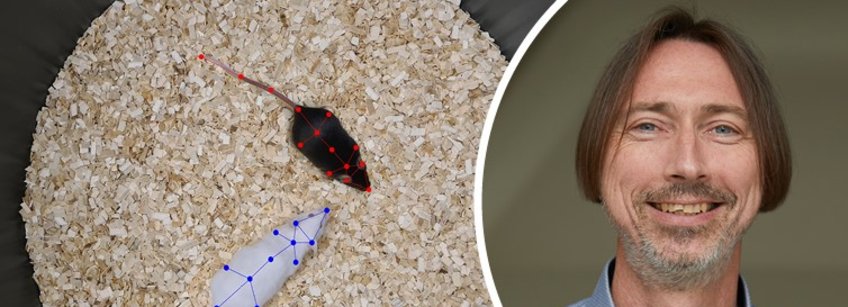
Mathias Schmidt
Background
Mathias V. Schmidt received his undergraduate and graduate training at the University of Bayreuth, Germany and the University of Delaware, USA, where he first became involved in stress research through the guidance of Prof. Seymour “Gig” Levine. He continued his research in the field of stress and development during his PhD training at the University of Leiden, the Netherlands, with Prof. Ron de Kloet. Mathias then moved to Munich, Germany, where he started his postdoctoral work at the Max Planck Institute of Psychiatry. Since 2010 he is leading the research group “Neurobiology of Stress Resilience” at the Max Planck Institute of Psychiatry and a lecturer at the Ludwig Maximilians University.
Research Interests
Stress, resilience, complex behavior, depression, anxiety, obesity, diabetes, glucocorticoid signaling, FKBP5, neuropeptides, autophagy
Goals and vision
Stress-related disorders are a major burden for our society and incidences for these disorders are dramatically on the rise worldwide. Although we have known for decades that unpredictable stress is one of the leading risk factors for mental and metabolic health, frontier research leading to scientific breakthroughs that enable innovative and effective treatment and prevention strategies targeting stress response and resilience are still missing. With my research I want to directly address this need by gaining a deeper, mechanistic understanding of the biological processes driving stress vulnerability and resilience, which ultimately allow the implementation of targeted pharmacological and non-pharmacological interventions to strengthen stress resilience and reduce disease burden. With the current stress crisis further unfolding, it is now the time to apply multi-dimensional and interdisciplinary research approaches aimed at transferring the developed knowledge on stress-related disorders to real-life innovative solutions.
Awards and Funding
- OptiMD consortium grant of the BMBF (2014)
- BioM award of the Bavarian State Ministry (2016)
- Kids2Health consortium grant of the BMBF (2017)
- GUTMOM consortium grant of the BMBF (2018)
- SinoDFG grant (2018)
- VIP+ grant of the BMBF (2021)
- FKBP5 project grant of the DFG (2021)